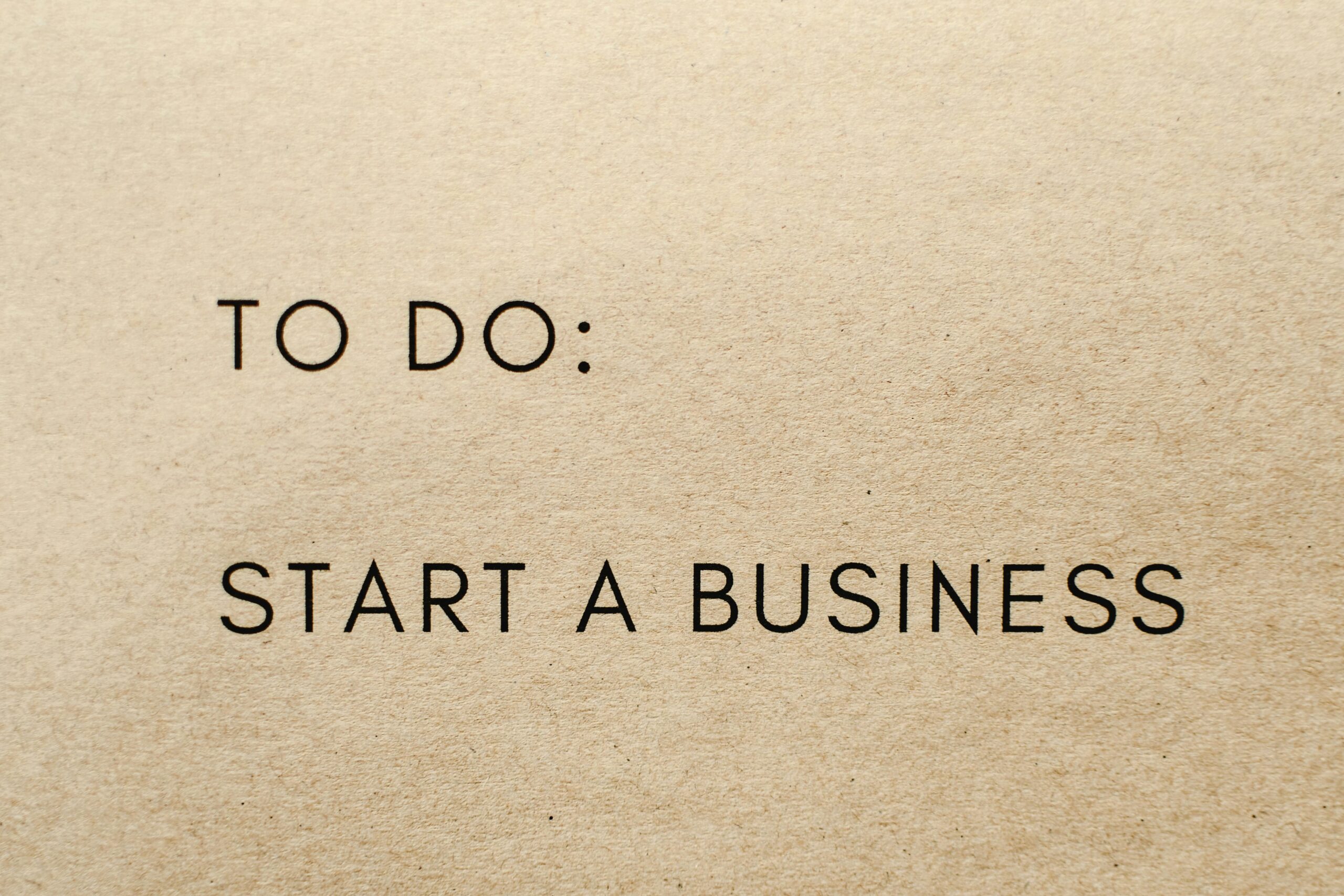Quick overview of this article
This article explores different types of personal goals, including career, health, financial, relationship, personal development, social, and creative goals. It highlights their importance, provides practical examples, and offers tips to help readers set and achieve these goals for a balanced and fulfilling life.
Setting personal goals is essential for self-improvement and growth. Goals give your life direction, keep you motivated, and help you stay focused on what truly matters.
What Are Personal Goals?
Personal goals are specific objectives you set to improve different aspects of your life. They act as a roadmap, guiding your actions and decisions. By working toward these goals, you develop new skills, gain confidence, and achieve personal growth.
Types of Personal Goals
Personal goals can cover various areas of life, such as:
- Career Goals: Advancing your professional life.
- Health Goals: Improving physical and mental well-being.
- Financial Goals: Managing money and building wealth.
- Relationship Goals: Strengthening bonds with loved ones.
- Self-Development Goals: Learning new skills or hobbies.

1. Career Goals
What Are Career Goals?
Career goals are essential for anyone striving to achieve professional success and personal fulfillment. They provide structure, direction, and motivation, ensuring you grow in your chosen field while staying aligned with your life aspirations. Let’s dive deeper into the concept of career goals, their types, and their broader impact on life satisfaction and work-life balance.
Significance in Professional Growth
- Clarity and Focus: Career goals help you identify what truly matters in your professional journey. For example, knowing you want to become a manager within five years can guide your decisions on training and networking.
- Motivation and Persistence: Clear goals fuel your motivation, helping you overcome challenges and setbacks.
- Career Advancement: With well-defined goals, you can strategically navigate your career path, improving your chances of achieving promotions, raises, and recognition.
- Professional Development: Setting goals pushes you to develop competencies like leadership, technical expertise, and problem-solving.
Types of Career Goals
1. short-term career goals
Short-term career goals are achievable within a few weeks to a year. These goals act as stepping stones to long-term aspirations.
Examples of Short-Term Career Goals:
- Completing a professional certification.
- Attending a workshop or conference to improve skills.
- Learning a new software or tool relevant to your industry.
- Updating your LinkedIn profile and resume.
2. Long-Term Career Goals
Long-term career goals are broader objectives that typically take years to accomplish. They require strategic planning, sustained effort, and adaptability to changing circumstances.
Examples of Long-Term Career Goals:
- Becoming a senior manager or executive.
- Transitioning to a different industry or starting your own business.
- Earning advanced degrees, such as an MBA.
- Building a professional brand through thought leadership or public speaking.
Examples of Career Goals in Action
- Getting a Promotion:
- Objective: Secure a higher position within your company.
- Steps: Develop leadership skills, exceed performance expectations, and seek mentorship from senior colleagues.
- Learning New Skills:
- Objective: Stay competitive in your field.
- Steps: Enroll in online courses, gain certifications, and practice new techniques in real-world projects.
- Expanding Your Network:
- Objective: Build relationships with industry professionals to open new opportunities.
- Steps: Attend conferences, actively participate in online forums, and maintain connections on LinkedIn.
Why Career Goals Matter
1. Connection Between Career Goals and Life Satisfaction
- Purpose and Fulfillment: Working toward meaningful career goals gives your life purpose, increasing your overall happiness.
- Improved self-worth: Achieving milestones builds confidence and reinforces your belief in your abilities.
- Holistic Success: A well-planned career aligns with personal goals, such as financial stability, which positively impacts your lifestyle.
2. Impact on Work-Life Balance
- Time Management: Clear career goals help you prioritize tasks and allocate time effectively, reducing stress.
- Avoiding Burnout: By aligning professional aspirations with personal values, you can maintain energy and motivation without sacrificing your personal life.
- Balanced Growth: Striking a balance between career progression and personal fulfillment ensures long-term sustainability and happiness.
Career goals are more than just aspirations—they’re essential tools for achieving professional success and personal satisfaction. Whether short-term or long-term, setting clear and actionable career objectives fosters career advancement, personal growth, and work-life balance. By actively pursuing these goals, you can build a fulfilling and rewarding professional journey while maintaining harmony in other areas of your life.

2. Health and Fitness Goals: Improving Physical Well-Being
Health and fitness goals are essential for maintaining a strong body and mind. These goals provide a roadmap to healthier living, helping you adopt habits that enhance your quality of life. Let’s explore the importance of health-related goals, the various types, and how to create effective plans for success.
What are health and fitness goals?
Health and fitness goals are specific objectives you set to improve your physical and mental well-being. They can range from achieving weight loss to establishing a consistent exercise routine.
Why are health goals important?
- Improved Physical Health: Helps lower the risk of chronic illnesses like diabetes, heart disease, and obesity.
- Enhanced Mental Health: Regular exercise and healthy habits reduce stress, anxiety, and depression.
- Increased Energy and Productivity: Staying fit boosts your stamina and focus, improving daily performance.
- Long-Term Wellness: Encourages sustainable habits for a lifetime of healthy living.
Types of Health Goals
1. Weight Loss Goals
2. Building Muscle
Building muscle improves strength and endurance, making daily tasks easier and reducing the risk of injury. It also boosts metabolism, helps maintain a healthy weight, and supports overall health as you age. For example, gaining 5 pounds of muscle in six months through strength training and high-protein nutrition.
3. Improving Endurance
Improving endurance enhances your ability to perform physical activities for longer without fatigue, boosting overall stamina. It supports heart health, increases energy levels, and improves daily performance. Here is an example: running a 5K within three months by gradually increasing distance and speed each week.
4. Adopting Healthy Eating Habits
Adopting healthy eating habits provides your body with essential nutrients, boosting energy and overall well-being. It also reduces the risk of chronic diseases and supports long-term health. For example, eating five servings of fruits and vegetables daily and reducing processed food intake.
Setting SMART Health Goals
SMART goals for health are specific, measurable, achievable, relevant, and time-bound. For example, “Walk 30 minutes daily, 5 days a week, for the next month” or “Eat 5 servings of fruits and vegetables each day for the next 2 weeks.” These goals help you focus, track progress, and stay motivated for healthier living.
Health and fitness goals play a crucial role in improving physical well-being and overall quality of life. Whether you aim to lose weight, build muscle, enhance endurance, or develop healthier eating habits, setting clear and achievable objectives ensures sustainable success. By using the SMART approach, you can stay motivated, track progress, and enjoy the benefits of a healthier, more active lifestyle.

3. Financial Goals
What Are Financial Goals? Financial goals are specific targets you set to improve your financial situation, whether it’s saving for a dream home, becoming debt-free, or planning for retirement. These goals provide a clear roadmap to achieve financial independence and long-term security.
Importance of Financial Planning
- Achieving Financial Independence: Financial goals empower you to live without relying on others or feeling restricted by financial burdens.
- Long-Term Financial Planning: With clear goals, you can allocate resources efficiently for major milestones like buying a house, funding education, or retiring comfortably.
- Stress Reduction: Proper planning eliminates financial uncertainty, reducing stress and enabling a more fulfilling life.
short term goals for trucking company: How To Create A Trucking Business Plan In 2025?
Types of Financial Goals
1. Saving for Retirement
Saving for retirement ensures financial security when you’re no longer working, allowing you to maintain your lifestyle. It’s important to start early to take advantage of compound growth and avoid financial stress later in life. for example, Contributing 15% of your income to a retirement account, such as a 401(k) or IRA, starting in your 20s or 30s.
2. Paying Off Debt
Paying off debt reduces financial stress and improves your credit score, giving you more control over your finances. It frees up money for savings and investments, leading to greater financial freedom. Here is an example, Paying off $10,000 in credit card debt within two years using the snowball or avalanche method.
3. Building an Emergency Fund
Building an emergency fund provides a financial safety net for unexpected expenses, like medical bills or car repairs. It offers peace of mind and helps prevent going into debt during emergencies. Here is a great example, Saving three to six months’ worth of living expenses in a high-yield savings account.
4. Investing
Investing helps grow your wealth over time by putting your money into assets like stocks, bonds, or real estate. It’s important for building long-term financial security and achieving financial goals like retirement. For example, Investing $500 monthly into an index fund to build a diversified portfolio for long-term growth.

How Financial Goals Support Personal Growth
1. Financial Security and Happiness
Financial goals provide a clear path to managing your money and reducing stress and uncertainty. By saving, investing, and planning for the future, you can build wealth and protect against unexpected events. Achieving these goals gives you the freedom to make choices that align with your values. Ultimately, financial security leads to greater peace of mind and a happier, more fulfilling life.
2. Financial Freedom and Personal Growth
Setting financial goals helps you take control of your money, enabling you to make intentional decisions that build wealth over time. It promotes discipline, encourages saving, and creates opportunities for investments, leading to financial freedom. As you work toward these goals, you develop valuable skills like budgeting and planning, fostering personal growth. Achieving financial independence gives you the confidence to pursue your passions and live life on your terms.
Financial goals are the cornerstone of achieving financial stability and independence. By focusing on saving, budgeting, reducing debt, and investing, you can create a secure financial future while enhancing your personal growth and happiness. Whether it’s building an emergency fund or planning for retirement, financial goals empower you to live with confidence and freedom.
4. Relationship Goals: Building Strong Connections
Relationship goals are the specific targets or aspirations you set to improve the quality and depth of your connections with others. These goals focus on fostering understanding, trust, and emotional intimacy in various relationships, helping you cultivate strong, meaningful bonds.
Importance of Nurturing Relationships
Nurturing relationships strengthens emotional bonds, providing support, love, and a sense of belonging. Strong relationships improve mental health, reduce stress, and enhance overall well-being, making life more meaningful and fulfilling.
Family: Strong family ties create a foundation of love, trust, and guidance that supports you through life’s challenges. Spending quality time together strengthens bonds and fosters a sense of belonging. A supportive family provides emotional security and helps you grow as a person.
Friendships: Friendships bring joy, companionship, and a safe space to share life’s ups and downs. Good friends inspire personal growth and offer fresh perspectives on problems. Cultivating meaningful friendships enhances mental health and adds happiness to everyday life.
Romantic Partners: A healthy romantic relationship thrives on trust, open communication, and mutual respect. It offers a space for emotional intimacy and personal growth through shared goals and experiences. Strong partnerships create lasting happiness and stability in life.

Types of Relationship Goals
1. Strengthening Communication
Strengthening communication is a key relationship goal that fosters understanding and trust between partners, friends, or family members. Open and honest conversations help clarify feelings, resolve conflicts, and build deeper connections. Effective communication creates a safe space where everyone feels heard and valued, enhancing the overall quality of the relationship.
2. Spending Quality Time Together
Spending quality time together is essential for building strong, lasting relationships. It allows people to connect on a deeper level, share experiences, and create meaningful memories. Quality time strengthens emotional bonds, improves communication, and fosters a sense of belonging. Whether it’s a romantic partnership, friendship, or family relationship, prioritizing time together shows care and commitment, reinforcing the foundation of the relationship.
For example, Engaging in shared activities, like cooking meals together or going for nature walks, encourages collaboration and creates joyful moments. Setting aside screen-free evenings for meaningful conversations or games can deepen understanding and strengthen bonds. Additionally, planning regular date nights, family outings, or catch-ups with friends ensures consistent opportunities for connection and shared enjoyment.
3. Resolving Conflicts Constructively
Resolving conflicts constructively is crucial for maintaining healthy relationships. Disagreements are natural, but how they are handled can either strengthen or damage the bond. Approaching conflicts with a mindset of understanding and respect helps prevent escalation and fosters solutions that satisfy both parties. Constructive conflict resolution encourages growth, builds trust, and ensures that relationships remain strong despite challenges.
Using “I” statements instead of blaming helps express feelings without accusing the other person, leading to more productive conversations. Taking a short break during intense moments to calm down can prevent saying things in anger that may later be regretted. Additionally, finding a compromise that addresses both individuals’ needs or concerns ensures both parties feel heard and valued, ultimately strengthening the relationship.
Relationship Goals for Personal Fulfillment
1. Emotional Well-Being Through Healthy Relationships
Emotional well-being is deeply influenced by the quality of the relationships we have. Healthy relationships provide emotional support, reduce stress, and enhance overall mental health. When we feel connected, understood, and valued by others, it fosters a sense of security and happiness. A strong support system, whether from family, friends, or romantic partners, plays a key role in maintaining balance and resilience in the face of life’s challenges.
Regularly checking in with loved ones, sharing your feelings, and offering support during tough times can create a safe environment for emotional growth. Expressing gratitude and appreciation for others strengthens bonds and enhances feelings of love and care. Additionally, resolving conflicts respectfully and ensuring open communication allows for emotional healing, which in turn promotes long-term well-being.
2. Building Trust and Emotional Connections
Building trust and emotional connections is the foundation of any healthy relationship. Trust creates a sense of safety and reliability, allowing individuals to be vulnerable and open with one another. When emotional connections are deepened, people feel more understood, valued, and supported. These strong bonds foster intimacy, making the relationship more resilient to challenges and conflict.
Consistently being honest and transparent, even in difficult situations, helps build trust over time. Taking the time to actively listen and validate the feelings of others shows empathy and strengthens emotional bonds. Sharing personal thoughts, fears, and dreams creates a deeper understanding, allowing for stronger emotional connections that enhance the relationship.
Setting relationship goals is vital for creating deep, meaningful connections with others. By focusing on communication, spending quality time, and resolving conflicts, you can nurture relationships that offer emotional support and fulfillment. Whether with family, friends, or partners, strong relationships contribute to personal well-being and overall happiness.

5. Personal Development Goals: Growing as an Individual
What Are Personal Development Goals?
Personal development goals are objectives you set to improve your personal qualities, skills, and mindset. They cover a broad spectrum, from boosting confidence to mastering new skills, all aimed at helping you reach your full potential.

Focus Areas of Personal Development
Self-improvement
Self-improvement involves intentionally working on aspects of yourself, such as habits, skills, and character traits, to live a better, more fulfilling life. For example, developing better time management skills, improving communication, or building self-discipline can significantly enhance your daily experiences and long-term success. It’s about small, consistent efforts that lead to meaningful growth.
2. Mental Health
Focusing on mental health means taking steps to improve your emotional well-being and resilience. This could include practices like mindfulness, meditation, or seeking therapy to manage stress and cope with challenges. By addressing your mental health, you can better handle life’s ups and downs, leading to greater peace and emotional stability.
3. Continuous Learning
Continuous learning is about expanding your knowledge and skills throughout life to stay adaptable and grow. Whether it’s picking up a new hobby, taking online courses, or reading books, learning helps you stay curious and prepared for new opportunities. It also boosts confidence and keeps your mind sharp as you navigate personal and professional challenges.
Types of Personal Development Goals
1. Learning New Skills
Learning new skills is essential for both personal and financial growth because it keeps you adaptable, improves problem-solving abilities, and opens doors to new opportunities. It boosts confidence, helps you stay competitive in your career, and ensures you can navigate changes in the job market. Moreover, acquiring diverse skills enriches your personal life by making you more resourceful and self-reliant.
2. Mindfulness Practices
3. Improving Self-Esteem
Improving self-esteem is crucial because it shapes how you view yourself and your ability to succeed. High self-esteem helps you make better decisions, build healthy relationships, and take on challenges with confidence. It reduces self-doubt and promotes a positive outlook, which is essential for personal growth and resilience in the face of setbacks.
Improving self-esteem involves adopting habits that nurture a positive self-image and build confidence. Start by practicing self-awareness—take time to reflect on your strengths and achievements, which helps you recognize your worth. Set small, achievable goals and celebrate your progress, as this reinforces a sense of accomplishment. Challenge negative thoughts by replacing self-criticism with positive affirmations and constructive beliefs. Learn to accept compliments gracefully, acknowledging your value instead of downplaying your successes. Additionally, developing new skills boosts your confidence by proving your ability to grow and succeed. These steps, when practiced consistently, create a strong foundation for lifelong self-esteem.
4. Managing Stress
Managing stress is essential for maintaining mental and physical well-being. Start by identifying stressors in your life and addressing them with practical solutions. Incorporate relaxation techniques like deep breathing, meditation, or yoga to calm your mind and body. Regular exercise and a healthy diet can also reduce stress by boosting energy and improving mood. Time management is key—prioritize tasks, break them into smaller steps, and avoid overcommitting yourself. Finally, seek social support by sharing your concerns with trusted friends, family, or a therapist. These strategies can help you navigate challenges with resilience and maintain a balanced life.

Why Personal Development Goals Are Essential
1. Fostering Lifelong Learning
Personal development goals are essential because they empower you to grow and unlock your full potential, both personally and professionally. They provide direction, help you overcome challenges, and enhance your quality of life. By fostering lifelong learning, personal development ensures you stay adaptable, skilled, and open to continuous growth.
2. Enhancing Self-Awareness
Enhancing self-awareness is crucial because it helps you understand your thoughts, emotions, and behaviors, leading to better decision-making and personal growth. With greater self-awareness, you can identify your strengths and weaknesses, improve relationships, and align your actions with your goals and values. It is the foundation for emotional intelligence, enabling you to navigate life’s challenges more effectively.
3. Supporting Mental Well-Being
Supporting mental well-being is crucial for maintaining emotional balance and overall happiness. It helps reduce stress, anxiety, and depression, while boosting resilience, focus, and productivity. Prioritizing mental health allows you to better cope with challenges and build stronger relationships with others.
Supporting mental well-being is vital for reducing stress, boosting resilience, and maintaining emotional balance. Simple practices like self-care, staying active, and building strong relationships can improve mental health. Seeking help from a therapist when needed and maintaining a healthy lifestyle with proper sleep and nutrition further enhance your overall well-being. These efforts lead to greater happiness and a more balanced life.
Personal development goals are the cornerstone of a fulfilling and meaningful life. By focusing on self-improvement, mindfulness, skill-building, and stress management, you can grow as an individual while achieving mental well-being and self-awareness. Setting these goals fosters lifelong learning and empowers you to lead a balanced, confident, and purpose-driven life.

7. Social and Community Goals
Social and community goals focus on making a positive difference in the world around you. By giving back and participating in social causes, you not only contribute to the well-being of others but also enhance your own sense of purpose and fulfillment. Let’s explore what these goals entail, the different types, and their profound impact on personal growth.
what are social and community goals?
Social and community goals are commitments you make to improve the lives of others and support the communities you are part of. These goals emphasize the value of altruism, collaboration, and responsibility toward societal well-being.
Types of Social Goals
1. Volunteering
Volunteering is important because it allows you to give back to the community while building a sense of purpose and fulfillment. It helps develop empathy, strengthen social connections, and improve mental well-being. Additionally, volunteering can enhance skills like teamwork and communication, benefiting both personal and professional growth.
2. Participating In Local Events
Participating in local events is important because it fosters a sense of community and belonging. It helps you build connections, support local initiatives, and stay informed about issues affecting your area. Engaging in events can also spark personal growth, promote cultural awareness, and create meaningful shared experiences.
3. Supporting a Cause
Supporting a cause is important because it allows you to contribute to something meaningful and create a positive impact. Whether through donations, advocacy, or volunteering, it helps raise awareness and drive change for issues that matter to you. Supporting a cause also fosters a sense of purpose and connection with like-minded individuals.
Unlocking Success: 20 Effective Team Goal Setting Activities
Impact of Social Goals on Personal Fulfillment
1. Enhancing Emotional Well-Being
Enhancing emotional well-being involves finding meaning, joy, and connection in life. Contributing to a greater cause gives you a sense of purpose, while acts of kindness bring happiness and fulfillment. Engaging with the community reduces feelings of isolation by fostering meaningful social bonds with like-minded individuals.
2. Building Skills and Experiences
Building skills and experiences through volunteering and social involvement promotes personal and professional growth. It helps you develop valuable skills like teamwork, leadership, and problem-solving. Additionally, participating in community activities broadens your network, offering new connections and fresh perspectives that can enrich your life and career.
3. Fostering a Positive Legacy
Fostering a positive legacy means leaving a meaningful mark on the world through your actions. Contributing to society creates lasting change that benefits future generations. Additionally, your involvement can inspire others to take action, multiplying the impact and encouraging a culture of giving and responsibility.
Social and community goals are about more than just giving back—they’re about making a meaningful impact while enriching your own life. Whether through volunteering, participating in local events, or supporting a cause, these goals foster a sense of purpose and connection. By contributing to the betterment of society, you not only help others but also grow as an individual, building a legacy of compassion and social responsibility.

7. Creative and Hobby Goals
What Are Creative and Hobby Goals?
Creative and hobby goals are aspirations centered around exploring personal interests and developing skills in areas you are passionate about. They are not tied to professional demands or external expectations but are purely for personal fulfillment.
Importance of Exploring Interests
Exploring interests is vital for personal growth and mental well-being. Creative activities like hobbies or passion projects help relieve stress by providing an escape from daily pressures, promoting relaxation and focus. They also encourage self-expression, allowing you to share your unique thoughts and emotions authentically. Additionally, pursuing these interests helps develop new skills, fostering personal and professional growth while enriching your life.

Types of Creative Goals
1. Pursuing Art
Engaging in visual arts like painting, drawing, or sculpting fosters creativity and mindfulness. For example, you could set a goal to complete a painting series or participate in a local art exhibition.
2. Writing
Writing provides a powerful outlet for communication and storytelling. You might commit to writing a novel, starting a blog, or maintaining a daily journal to express your ideas and reflections.
3. Photography
Photography enhances your attention to detail and creative vision. A goal could be learning advanced photo editing techniques or creating a portfolio of travel photography.
4. Music
Playing an instrument or composing music allows for emotional expression and skill development. Examples include mastering a new instrument or recording an original song.
5. Other Creative Outlets
Hobbies like cooking, crafting, gardening, or dancing offer fun and fulfilling ways to channel creativity. You might take a cooking class to explore new cuisines or design handmade crafts for a personal project.
How Creative Goals Promote Happiness
Creative goals promote happiness by providing mental relaxation, emotional well-being, and personal fulfillment. Engaging in creative activities reduces stress and helps you enter a flow state, offering deep satisfaction. These pursuits support self-discovery, allowing you to process emotions while boosting mood through the release of dopamine. Additionally, completing creative projects or mastering hobbies brings a sense of accomplishment and purpose, enriching your life with meaningful and enjoyable experiences.
Creative and hobby goals are essential for a balanced, joyful life. They provide a space for self-expression, relaxation, and personal growth, whether through painting, writing, music, or photography. By dedicating time to creative pursuits, you enhance your mental well-being and cultivate passions that add richness and purpose to your life.
5 Goals for Professional Development: How to Track Progress and Stay Motivated

Conclusion
Personal goals are the building blocks of a balanced and fulfilling life, covering areas like career, health, finances, relationships, community, and creative passions. Each type of goal contributes to your overall well-being and personal growth, whether it’s advancing professionally, improving physical health, or nurturing meaningful connections. Reflecting on these areas can help you identify what matters most and where you’d like to grow. Goals aligned with your values not only provide direction but also create a sense of purpose and satisfaction.
To succeed, prioritize setting SMART goals—specific, measurable, attainable, relevant, and time-bound—while maintaining balance across life’s different aspects. Start small by focusing on manageable steps and regularly revisiting your goals to stay aligned with your evolving priorities. Whether it’s learning a new skill, strengthening relationships, or giving back to your community, taking action today will help you build the life you envision. Begin by writing down one meaningful goal and outlining how you’ll achieve it—your journey to a fulfilling life starts now!


